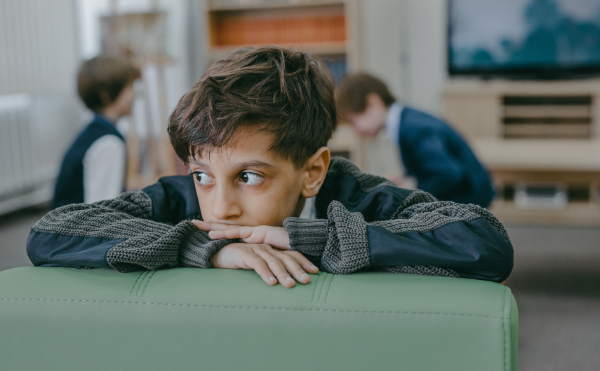
Foster care provides temporary relief for children who cannot safely remain with their biological families. All children are different, and each has unique experiences, so foster care experiences can vary greatly. However, while foster care provides a safe haven for children, it’s crucial to understand the profound psychological impact the experience of being placed in care can have, often lasting into adulthood.
The Positive Effects of Foster Care
- Resilience: The ability to develop resilience due to adapting to various situations and environments.
- Personal Growth: Exposure to opportunities for personal growth and development through exposure to new experiences and relationships.
- Stability and Safety: Experiencing stability and safety if removed from an abusive or neglectful environment.
- Positive Role Modeling: Learning positive behaviors and coping strategies from foster parents or other supportive adults.
- Expanded Support Network: Opportunities to develop an expanded network of supportive relationships, including connections with foster siblings and other foster family members.
- Access to Resources: Enjoying increased access to educational, health, and social resources that may not have been available before entering care.
Challenges and Potential Negative Effects
Attachment Disorders and Relationships
Children in foster care often struggle with attachment and forming relationships. Frequent caregiver changes can impair a child’s ability to create secure attachments, leading to:
- Difficulty trusting others
- Social challenges
- Problems with intimacy and closeness
In addition, foster care youth are more likely to have a dismissive attachment style as adults.
Mental Health
Children in foster care have higher rates of mental health problems than their peers, including:
- Anxiety disorders
- Depression
- PTSD
- ADHD
These issues may result from early childhood trauma and the stress of being separated from family and adjusting to new caregivers.
Developmental Impacts
The trauma and instability of foster care can affect child development in areas like [4]:
- Cognitive functioning
- Language and communication
- Motor skills
Children may exhibit developmental delays that make school more challenging.
Identity Struggles
Foster youth often struggle with their sense of identity and belonging. They may feel disconnected from their biological family but not fully integrated into foster families. Effects may include:
- Poor self-esteem
- Feelings of not belonging
- Lack of cultural or ethnic identity
Emotional Regulation Issues
Children exposed to unstable or stressful environments can have difficulties regulating their emotions.
Low Self-Esteem
Some children in care may have lower self-esteem due to feelings of rejection or worthlessness, especially if they perceive themselves as being “in the system.”
Grief and Loss
Many children in care may have ongoing experiences of grief and loss, particularly if separated from siblings or other significant family members.
Strategies to Mitigate Negative Psychological Effects
Strengthening Support Systems
Building and maintaining robust support systems, including professional counseling and therapy services, can help children in care cope with their experiences and develop resilience.
Enhanced Training for Foster Parents
Providing additional training for foster parents helps them better understand and address the unique needs of foster children. Training should include strategies to help children develop secure attachments and emotional coping skills.
Consistent Education Support
Implementing educational support systems that maintain stability in school settings can mitigate the potential negative impacts on academic performance.
The One Family Illinois Advantage
One Family Illinois is a unique model that places full-time, professional Foster Parents in single-family homes in one of its Villages, where up to six children, ranging in age from infants to young adults, call home. Our villages boast built-in access to caseworkers or therapists and a 100 percent graduation rate, and 75 percent of those high school graduates choose to pursue a college degree.
Consider Becoming a One Family Illinois Foster Parent
If you want to become a foster parent, consider signing up with One Family Illinois. Thousands of children in Illinois are ready to be welcomed into loving foster homes. If you’re prepared to take the leap and change a child’s life, check out how to make that happen.
Change a Child’s Life Today!
If you decide becoming a foster parent isn’t for you, there are many other ways to support foster children and other foster parents. You can support One Family Illinois by making a one-time donation by clicking here. You can also help by participating in an One Family Illinois fundraising event or making an in-kind contribution. The generosity of donors has enabled us to provide safe, stable, loving homes for more than thirty years.